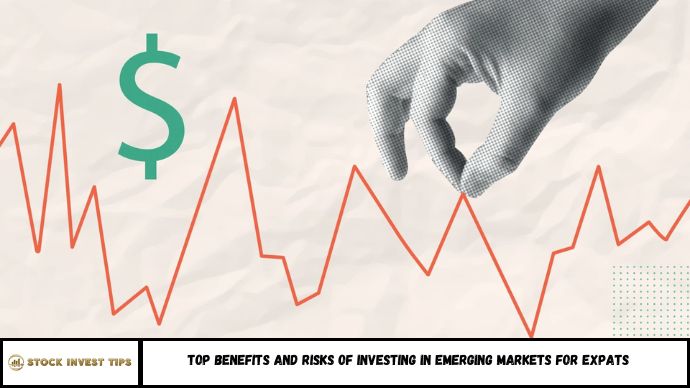“Emerging markets are volatile, unpredictable, and full of opportunity.” That’s how one global investor summed up the unique blend of risk and reward these regions offer. For expats seeking to diversify their portfolio or build wealth abroad, emerging markets often seem like a goldmine—but how do you navigate the real challenges?
This article explores the benefits and risks of investing in emerging markets, specifically from an expat’s perspective. You’ll learn what makes these markets attractive, the potential downsides, and how to approach them with a strategic mindset.
Investing in emerging markets offers expats high-growth potential, portfolio diversification, and unique access to new opportunities. However, it comes with significant risks, including political instability, currency volatility, and regulatory challenges. This article explores the pros and cons, offers practical insights, and includes the latest statistics to help expats make informed decisions.
For expats seeking to grow their wealth abroad, emerging markets present a unique and exciting opportunity. These rapidly developing economies offer strong growth potential and the ability to diversify beyond traditional, developed markets.
But with high reward often comes high risk. From political uncertainty to currency volatility, investing in emerging markets requires careful consideration.
In this guide, we’ll explore the major benefits and hidden risks of investing in emerging markets as an expat—and share smart strategies to help you navigate them confidently.
Why Emerging Markets Appeal to Expats
1. High Growth Potential
Emerging markets like Brazil, India, Vietnam, and Kenya are often characterized by rapid economic growth. According to the IMF, emerging economies are expected to grow by 4.2% in 2025, nearly double the growth rate of advanced economies.
- Young populations and urbanization drive consumption.
- Tech adoption and infrastructure development spur growth.
- Often underpenetrated markets with less competition.
2. Portfolio Diversification
Including emerging market assets can reduce overall portfolio risk by spreading exposure across different economies and currencies.
- Adds variety beyond traditional U.S. and EU equities.
- Often low correlation with developed markets.
- Ideal for long-term, globally minded investors.
What Risks Should Expats Watch Out For?
1. Political and Economic Instability
Many emerging markets have less stable governments, which can affect investment conditions overnight.
- Policy shifts, coups, or corruption can destabilize the market.
- Example: Sri Lanka’s 2022 debt crisis caused market chaos.
Tip: Always track the country’s political risk index and follow reputable expat financial advisories.
2. Currency Volatility
Local currencies may depreciate sharply, eroding gains.
- In 2024, the Argentine peso lost over 50% of its value against the U.S. dollar.
- Unhedged foreign exchange risk can turn profits into losses.
Solution: Use ETFs or investment vehicles that offer currency hedging.
3. Legal and Regulatory Uncertainty
Rules regarding foreign ownership, taxation, and repatriation can change suddenly.
- Some countries cap foreign investment or restrict withdrawals.
- Legal recourse for investors is often limited or expensive.
Pro Tip: Work with international financial advisors and legal experts who specialize in expat investing.
Best Practices for Expat Investors in Emerging Markets
Start with Managed Funds or ETFs
Let professionals handle the complexity. Look into:
- iShares MSCI Emerging Markets ETF (EEM)
- Vanguard FTSE Emerging Markets ETF (VWO)
Conduct Country-Specific Research
Each country has its own set of rules, opportunities, and challenges.
- Use sources like the World Bank Ease of Doing Business Index.
- Check local expat forums and embassy advisories.
Hedge Your Risk
- Diversify across several countries, not just one.
- Mix equities, fixed income, and real estate.
Latest Emerging Market Trends in 2025
- AI and Fintech are booming in Southeast Asia and Africa.
- China is becoming more inward-focused; other markets like India, Mexico, and Indonesia are gaining favor.
- Green energy investments are rising, especially in Latin America.
Stat to Know: According to Morgan Stanley, $400 billion in foreign direct investment is projected to flow into emerging markets in 2025, up 15% YoY.
Frequently Asked Questions (FAQ)
1. What are the safest emerging markets for expats?
Countries like India, Mexico, and Vietnam are considered relatively stable with investor-friendly policies.
2. Is real estate a good investment in emerging markets?
Yes, but verify local property laws. Real estate can be lucrative but comes with legal complexity.
3. Can expats invest in emerging markets from abroad?
Absolutely. Use ETFs, mutual funds, or digital platforms like Interactive Brokers.
4. How do I avoid currency risk?
Invest in currency-hedged funds or hold some assets in USD or EUR.
5. Are emerging markets good for short-term investing?
Not ideal. They are better suited for long-term growth due to volatility.
6. Do I need a local bank account to invest?
Not always. Some platforms allow remote access, but for direct investments, it may be necessary.
Conclusion
If you’re an expat seeking growth, diversification, and international exposure, emerging markets can be a compelling option. But the rewards come with risks—from currency fluctuations to political upheaval.

